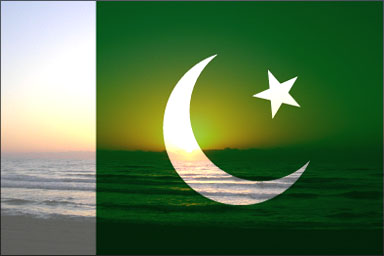Since the independence, Pakistan has been shrouded in conundrums of mystified bomb blasts, plane crashes, assassinations of major influential political figures and military dictators plus the befalling of disconsolate events like disintegration of Pakistan. After every incident or juncture, it had been customary in Pakistan that a committee was formed by the government to investigate that particular advent but unfortunately, never in the history of Pakistan, the findings of the committee came out. As far as public is concerned, there is inveterate initial outbursts and then everything goes buttoned up.
 It is pertinent to mention the past instances which still contribute to the confusion and travails in understanding them wholesomely to the Pakistani nation. Abstaining from going into past, let’s start from the Kargil issue; it is a contention which has never been addressed contemplatively by the government, even today it still is the flash point between Nawaz Sharaif and Musharraf’s rivalry. One claims complete obliviousness to the issue while the latter one declares Pakistan’s victory.
It is pertinent to mention the past instances which still contribute to the confusion and travails in understanding them wholesomely to the Pakistani nation. Abstaining from going into past, let’s start from the Kargil issue; it is a contention which has never been addressed contemplatively by the government, even today it still is the flash point between Nawaz Sharaif and Musharraf’s rivalry. One claims complete obliviousness to the issue while the latter one declares Pakistan’s victory.Moreover, the most important and foremost issue that has caused great affliction and depredation to Pakistan is so called United State’s “War of Terror”. As a result of this war, Pakistan has lost 35000 precious civilian lives and 5000 men in uniform. The country’s economy has borne the toll of more than 68 billion dollars according to economic survey of Pakistan. In addition, Pakistan army has also endured numerous attacks on its vital installations including General Head Quarters (GHQ) located in Rawalpindi.
After the ouster of Pervaz Musharraf, U.S. wanted his (Pervaz Musharraf) polices to be continued as her (U.S.) interests were well-protected under his regime. Therefore US along with other elements of establishment formulated NRO and engineered 2008 elections in which PPP won the majority and formed government in which nearly every party in the parliament was entailed in power.
United States’ and its coalition partners’ war in Afghanistan , in any expert’s view, is a complicated and convoluted war in which myriad of regional and non-regional players have drawn themselves into it, in order to pursue their covert agenda and ulterior strategies but overtly they all are on one page; to bring stabilization and peace in this region. Pakistan has unfortunately being enmeshed and entangled in this war and henceforth, suffered the maximum.
Pakistani public has never been able to ask the question from their incumbent governments since 9/11, what is our policy in “War on terror”. In fact our policy was driven on the basis of fear plus carrot and stick policy adopted by US as far as Pakistan is concerned. Our leaders in arrant fear, cowardice ad for the sake of dollars dragged someone else’s war initially into Pakistani tribal areas and eventually inside the rest of the country.
Blatant and incessant drone’s attacks by Americans with the tacit agreement and understanding of their counterparts in Pakistan has proved to be counter-productive and hence, fuelled anti- Americanism, insurgency and bomb blasts inside the Islamic republic.
The youth of Pakistan ought to realize the dynamics and veracity of the problem we are in, as they are future leaders of this country which has abundance of potential to rise and become one of the power centers of the world. Pakistan is in this mess because of the inability of the masses to question their leaders’ doings and activities since its inception.
We have never asked, what Raymond Devis was doing in Pakistan and more important his network that is still operating inside Pakistan. He was released, exonerated of all charges, keeping into account his covert activities. Only two political parties (i.e. Jamaat-e-Islami (JI) and Pakistan Tehrik-e-Insaf (PTI)) have protested against his release while rest of the nation was in utter apathy. We should question the authorities about the level of involvement of external factor which directly and actively contribute to the ever deteriorating law and order situation of Pakistan. Recent arrest of Pakistani Hindu singer, Asma Lata, by secret agencies on account of spying for Indian in terror ripped KP; raise eye brows and signifies the extent of Indian role in whatever is happening inside the geographical boundaries of Pakistan.
Moreover, committee reports of incidents such as Abbotabad operation and Mehran base attack got to be made public as the whole nation has confronted the catastrophe. Additionally, an effort has to be made to make all institutions accountable for every deed and action they take and punitive action with stern hand should be taken against defrauders and swindlers.
The writer is currently a student at NBS










